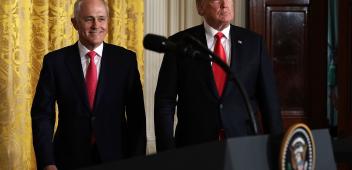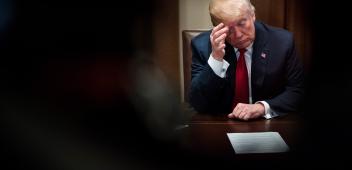G20 needs to pay attention to WTO
In an opinion piece in The Australian Financial Review, Mark Thirlwell writes that the WTO needs to be prepared for the ways in which looming mega-regional deals will change the way global trade is done and that the G20 needs to do more to support the multilateral trading system.

Executive Summary
G20 needs to pay attention to WTO
Mark Thirlwell
The Australian Financial Review
19 June 2013
P. 47
Once upon a time, mention of the world trade organisation or the multilateral trading system it supports would trigger a heated debate. Depending on your view, the WTO was either an essential engine of international economic integration and global development, or the 'Great Satan' of globalisation that could summon thousands of angry protesters onto the streets of Seattle. Today, the reaction is likely to be a yawn.
The long-running failure to complete the Doha Round of multilateral trade negotiations has become the equivalent of a bad joke for international policy. But because trade is still growing despite Doha's failure; because even the depths of the financial crisis didn't bring a major relapse into protectionism; because many of the world's most pressing trade policy issues are not even on the current negotiating agenda; and because there are some 'mega-regional' trade deals looming, including the Trans-Pacific Partnership, which includes Australia, and the US-EU Transatlantic Trade and Investment Partnership, it's tempting to think that the old global trading system is now irrelevant.
Indeed, should those mega-regional deals succeed, then the rules of the game for 21st century global trade will increasingly be set outside of the multilateral system.
From the standpoint of individual economies, pursuing alternatives to the WTO may make sense given the difficulties of reaching agreement at the global level. But for the world as a whole, letting the multilateral trading system decay means taking a big risk.
After all, remember that the current system has its origins in the chaos of the interwar period and the lesson that we should avoid the trade fragmentation and competing blocs that helped destabilise the world economy back then. That lesson remains important for today's world of shifting economic power and fears about resource security and geo-economic competition.
As the world's premier international economic forum, the G20 should take a keen interest in the maintenance of a robust trading system. Yet the multilateral trading system has not always been treated as central to the G20's interests, and in recent years has slid down the group's list of priorities. It is time for G20 leaders to rectify this relative neglect. They need to draw the disappointments of the Doha era to a close and help set the agenda for a new round of trade negotiations. They need to reinforce and upgrade their past commitments to open markets. And they need to support reform of the WTO more generally in order to make it fit for the way trade works in today's global economy.
The world's repeated failure to conclude Doha indicates that all this will be tough to achieve. But the alternative is to stand back and let the multilateral system unravel. That involves taking the kind of risky, high-stakes bet that the G20 should be working hard to avoid.



